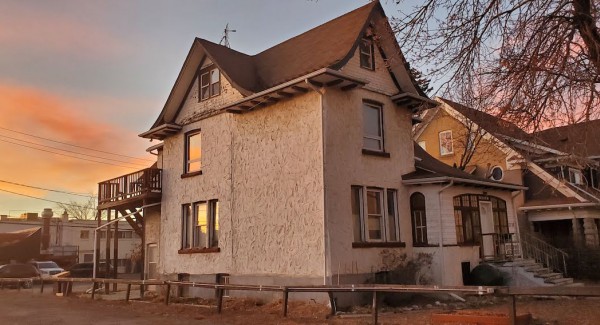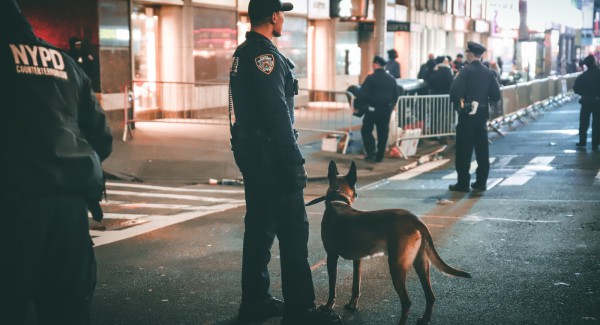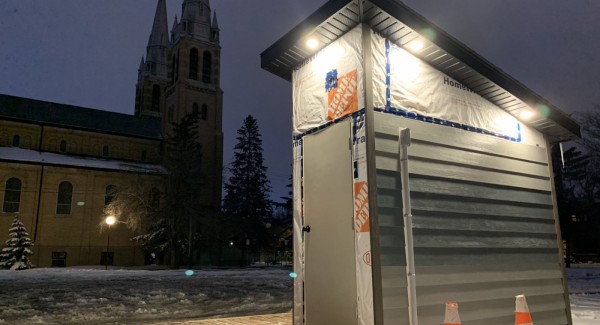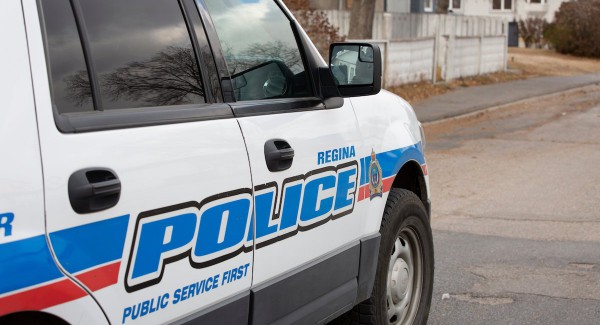Regina Municipal Election 2020: Sustainable transit
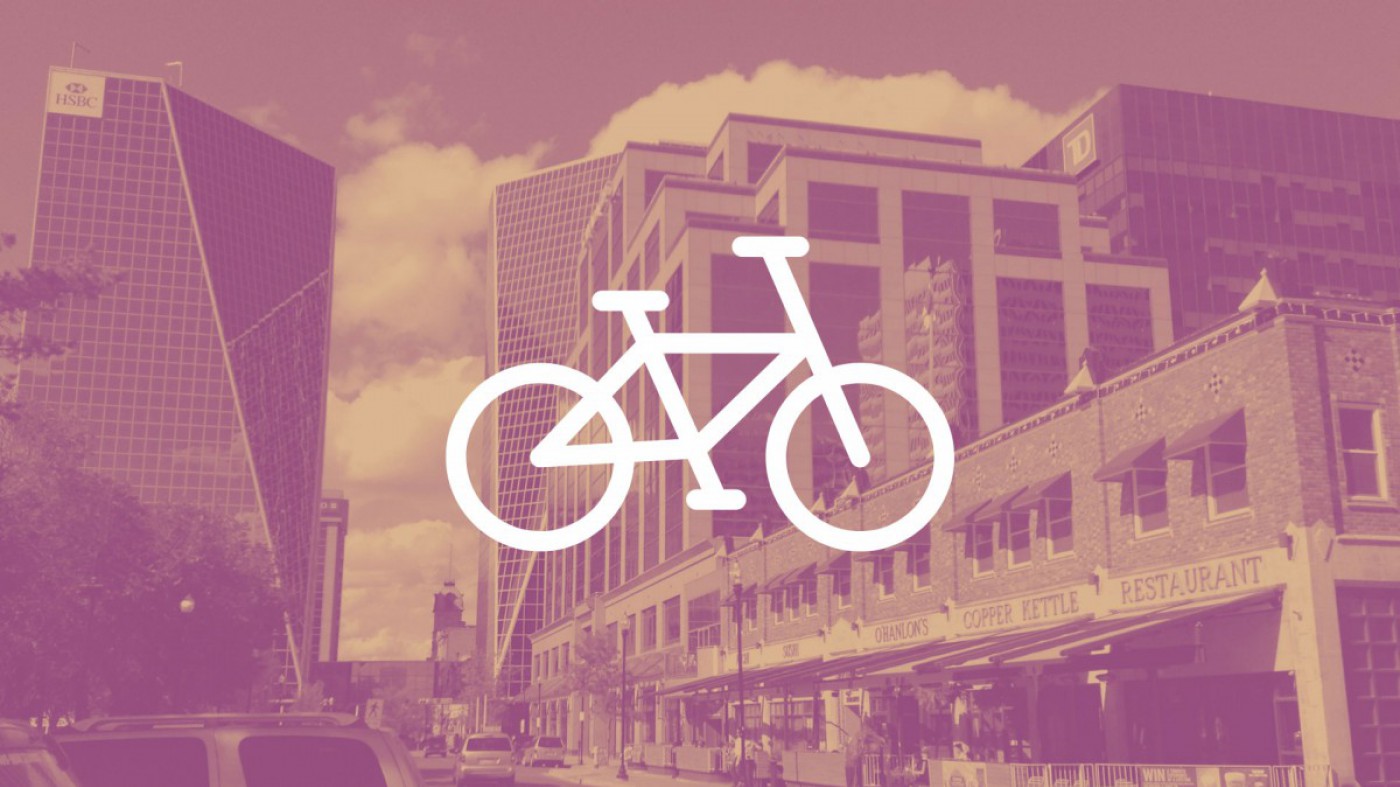
Photo: Jd.101, CC BY-SA 4.0, via Wikimedia Commons; Icon: Bus by i cons from the Noun Project
In preparation for Regina’s 2020 municipal election, the Sask Dispatch asked progressive community members, activists, and experts to pick one pressing issue facing the city, and write about how to address it. John Klein, president of the board of the Regina Car Share Co-operative, weighs in on the city’s action on sustainable transport and bike lanes.
How long have you lived in Regina and what ward do you live in?
I’ve lived in Regina since 1998 when I started university, and aside from a few years elsewhere since, have lived in Ward 1 (now Ward 6 with the reorganization of the ward boundaries this year).
What is your occupation?
I’m an IT professional. Since the pandemic hit, I’ve been working almost entirely from home. I also volunteer on my condo board, and am the long-time president of the board of Regina Car Share Co-operative.
How has the mayor and council approached the subject of sustainable transport over the past four years? What have they promised to do about this issue if they’re re-elected?
The mayor has approached sustainable transportation with disdain and dismissiveness. He has presided over a council that increased the prices for bus passes and fares – in response to that action, the students at the University of Regina organized and convinced enough people to implement the U-Pass. The universal bus pass for students was perhaps the lone policy the city has relented on to concretely advance sustainable transportation in Regina in the 2010s. [Editor’s note: since the university moved to online course delivery during the COVID-19 pandemic, the U-Pass has been cancelled.]
The majority of councillors have an unhealthy fixation on parking concerns, and how to get more parking into projects, even going so far as to let it derail in-fill developments if parking minimums couldn’t be met.
The majority of councillors have an unhealthy fixation on parking concerns, and how to get more parking into projects, even going so far as to let it derail in-fill developments if parking minimums couldn’t be met.
Councillor Bob Hawkins has an unhealthy fixation on bicycle helmets, and managed to distract council for hours during the height of the first wave in the pandemic to discuss an idea to implement an unproven cycling safety plan that also happens to criminalize people who already face unfair policing.
Councillor Barbara Young promised residents she’d get a bike lane built in Ward 1, but that never materialized, nor did long-awaited street repairs in most neighbourhoods with decades-old heaving pavement.
Councillor Joel Murray attempted to implement a one metre safe passing buffer for cyclists, but in an age of social distancing, two metres is the new gold standard, right?
And Councillor Andrew Stevens attended a community sustainability forum a few weeks before the pandemic lockdown, where attendees agreed that free transit was perhaps the most important initiative to implement for a more sustainable Regina. Weeks later, transit was free for everyone. Now, Regina Transit has reverted to collecting fares and people complain that mandatory mask-wearing isn’t universally respected on buses, so the COVID-19 risk isn’t minimized as it could be and the bus service isn’t doing all it can to combat climate change.
I’ve known several of the councillors for years, and many of them never manage to vote in favour of motions or bylaws that could reduce emissions.
As there are 10 incumbents on council running again (including Ward 10’s Jerry Flegel who is running for mayor), I’m not aware of all their specific campaign promises. Many don’t even have a Twitter account where I would see what they’re promoting, and like most voters I haven’t hunted down their websites. I am skeptical of their ability or willingness to implement their sustainability-related promises anyway, if they aren’t Councillors Stevens or Murray. Councillor Murray represents the ward I live in, and has delivered a document promising to pursue the Renewable Regina 2050 plan, which council passed years ago but has since done nothing to meet its aims. I’ve known several of the councillors for years, and many of them never manage to vote in favour of motions or bylaws that could reduce emissions.
What kinds of political, social, and economic factors do you think play into their response to this issue?
Obtaining free parking is the most basic instinct of a driver in Regina. Therefore, when something seems to threaten the free parking that one has become accustomed to, it’s seen as a threat to one’s own lifeblood. This means the city council has to listen to wailing and gnashing of teeth if they do anything that might change how much parking is available in a given area. They attempt to overlook the shelved parking study done years ago, and have launched another one by way of Councillor Flegel not too many months ago.
It’s not easy to get around Regina to do all your errands without a car, especially in winter, or if you have kids that attend daycare, school, or after-school activities. That’s part of why Regina Car Share Co-op exists, to help fill that gap for members who ordinarily bike or walk, but need a car for a city and province that demands it to fit in socially. Because it’s so expensive to drive, even with subsidized “free” parking, people can’t easily justify the added cost of also paying for a bus pass, and to buy and maintain a bike that gets stolen every few years because there’s often no secure place to keep it.
There are presently only a few councillors who seem to sincerely want Regina to meet its lofty, long-term goal which obviously needs to include low-emission transportation systems.
In 2018, all of council (including the mayor, grudgingly) committed in 2018 to a 100 per cent renewable city by 2050. The mayor and city hall have since tried to claim that resolution only applies to city facilities, when the motion indicated it was for the entire city. There are presently only a few councillors who seem to sincerely want Regina to meet its lofty, long-term goal which obviously needs to include low-emission transportation systems.
The federal Liberals provided funding for the city to build a new bus barn that could support battery electric vehicle (BEV) buses. Construction has yet to start, years later. Saskatoon, on the other hand, unveiled a BEV bus in early October.
The city’s fleet of parking enforcement vehicles are not fuel efficient, since they are SUVs. The city has told me they’re considering fossil “natural” gas burning buses as their next purchase, even though the city flirted with fossil gas trucks in the 1990s and didn’t continue with that project.
How does attention or lack of attention to sustainable transit impact the city as a whole? Who is impacted the most?
The people most affected by the city’s lack of real support for low-emission, low-cost transportation are the people least able to afford what they need. People who can’t afford a car, which on average costs between $3,300-$8,000 per year according to the CAA, are stuck waiting for buses that don’t have heated shelters, are frequently late, and run on limited schedules. And now people have to worry a bit about catching COVID-19 while on public transit in close proximity to strangers.
The people most affected by the city’s lack of real support for low-emission, low-cost transportation are the people least able to afford what they need.
How have other cities, like Prince Albert and Saskatoon tackled the subject of sustainable transit?
I took a quick look at Prince Albert’s website for sustainable transportation, and a Transportation Master Plan came up. I didn’t see anything regarding sustainability at first glance. It seems to be about increasing vehicular traffic efficiency, not reducing emissions. According to the site, “the intent is to identify current and future capacity deficiencies and develop ways of improving capacity and traffic flows.”
Similarly in Saskatoon, they’ve reduced the amount of protected bike lanes downtown compared to a couple years ago. There is an effort to shelve the Bus Rapid Transit plan by the former mayor there.
Are there cities that have had success addressing this issue?
Saskatchewan cities are not known for solving the sustainable transportation issue. When I lived in Yorkton 15 years ago, there was one bus route in the city, and it didn’t run on weekends for recreational use. Moose Jaw has bike paths that flood in the spring and become unusable, like in Regina.
The City of Regina should set emissions reduction targets for this decade, and analyze each bylaw in view of whether it’s likely to help or hinder the city in meeting its target.
What can the city do to make sustainable transit a priority? What would success look like?
The City of Regina should set emissions reduction targets for this decade, and analyze each bylaw in view of whether it’s likely to help or hinder the city in meeting its target. Success will primarily be measured in tonnes of carbon dioxide prevented from entering our atmosphere. Switching fuel-burning vehicles to zero-emission options already available in the market seems like an obvious place to start. Incorporating more transit shelters into already-heated buildings, and switching the heat to a renewable source, is another component of building a renewable city.
What can residents do to set the agenda on sustainable transit?
During the municipal and provincial election, the most important thing is to find and support candidates who favour rebuilding provincial public transportation on the roads and rails. Also, there are several advocacy groups available to bolster public support for sustainability and active transportation choices. Bike Regina, Regina Citizens Public Transit Coalition, Saskatchewan Electric Vehicle Association, EnviroCollective, Regional Centre of Expertise Saskatchewan, and Regina Car Share Co-operative are some of the sustainability and transportation organizations I’m aware of, or even involved with, in Regina.
Are there particular candidates for mayor or council who you think would do well at addressing this topic?
Of the mayoral candidates, I’d have to advise against voting for either Mayor Michael Fougere or Councillor Jerry Flegel if you value a more sustainable city.
I’ve known both Jim Elliott and George Wooldridge for more than a decade, and either would passionately support advancing Regina toward the 2050 sustainable city objective.
Mitchell Howse has taken an anti-science, “pro-liberty” stance on wearing masks, so I don’t guess he’d care about sustainability.
During the municipal and provincial election, the most important thing is to find and support candidates who favour rebuilding provincial public transportation on the roads and rails.
Regarding Tony Fiacco, Sandra Masters, and Darren Bradley I’ve not been able to find them mention sustainability, or anything approaching that subject.
Councillors Andrew Stevens and Joel Murray, and even John Findura brought forward the initial effort to enhance Regina’s overall sustainability, so I’d trust them the most. Councillor Findura has since seemed less enthusiastic about the 2050 motion than the other two.
I have enough confidence that Cheryl Stadnichuk in Ward 1 will address this topic that when I heard she was running in the municipal election, I made the decision to not run again in that ward as I had in 2012.
Dan LeBlanc in Ward 6 has included accessible and free transit for “seniors, students, and those on social assistance” in his platform.
Shanon Zachidniak in Ward 8 also has my confidence regarding the development of sustainable transportation for Regina, since she founded the EnviroCollective.
Rob Humphries in Ward 9 promises “creation of a sustainable, inclusive, equitable,100 per cent renewable Regina accomplished in the spirit of reconciliation, and enhancements to public transportation, waste management/recycling, and policing/crime prevention.”

